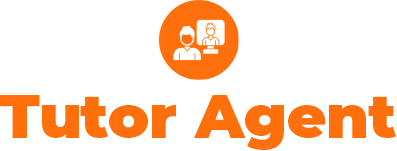In the dynamic realm of education, the journey toward academic success involves not only imparting knowledge but also continuously evaluating and refining the learning process. Regular progress assessments stand as the cornerstone of effective tutoring, offering a roadmap for both tutors and students to navigate the path to mastery. Let’s delve into the pivotal importance of integrating these assessments into the tutoring framework, unlocking the full potential of learners.

Active Monitoring for Continuous Improvement
Progress assessments serve as the vigilant eyes that actively monitor a student’s academic journey. By regularly evaluating comprehension, grasping of concepts, and application of skills, tutors can identify areas of strength and weakness. This ongoing scrutiny allows for prompt adjustments in the tutoring approach, ensuring that students receive tailored guidance and support precisely where they need it most.
Empowering Students with Feedback
Feedback is the fuel that propels academic growth. Regular progress assessments provide an avenue for tutors to offer constructive feedback, acknowledging achievements and pinpointing areas that demand improvement. This personalized feedback becomes a powerful tool, not just in rectifying mistakes but in fostering a mindset of continuous learning. It empowers students to embrace challenges, view mistakes as stepping stones, and actively engage in the learning process.
Setting Clear Academic Goals
Goal-setting is an integral aspect of any successful educational journey. Progress assessments facilitate the establishment of clear, achievable academic goals. Tutors, in collaboration with students, can delineate specific objectives, whether mastering a challenging concept, improving problem-solving skills, or enhancing overall academic performance. These goals serve as beacons, guiding the trajectory of tutoring sessions and instilling a sense of purpose in the learning process.
Building a Foundation for Self-Evaluation
The ability to assess one’s progress is a valuable skill that extends beyond the confines of the tutoring session. Regular progress assessments cultivate this skill in students. As they become accustomed to reflecting on their performance, understanding strengths, and identifying areas for growth, they develop a foundation for self-evaluation. This self-awareness is a lifelong asset that empowers students to take charge of their learning journey independently.
Adapting to Individual Learning Styles
Every student is unique, with distinct learning styles, preferences, and paces. Regular assessments provide tutors with invaluable insights into these individual characteristics. Armed with this knowledge, tutors can tailor their teaching methods to align with the way each student absorbs and processes information. This adaptability ensures that tutoring sessions are not a one-size-fits-all approach but a customized experience crafted to optimize learning outcomes.
Tracking Long-Term Progress
Education is a marathon, not a sprint. Regular progress assessments contribute to the creation of a comprehensive picture of a student’s long-term development. Through systematic tracking, tutors and students can witness the evolution of skills, knowledge retention, and overall academic performance. This holistic perspective is instrumental in celebrating achievements, addressing challenges, and adjusting the trajectory for sustained success.
Cultivating a Positive Learning Culture
A positive learning environment is a catalyst for academic excellence. Regular progress assessments contribute to the cultivation of such an environment by fostering open communication and collaboration. This positive culture not only enhances the tutoring experience but also nurtures a love for learning.
Prompt Intervention for Struggling Students
Timely identification of academic struggles is a key benefit of regular progress assessments. If a student consistently faces challenges in grasping certain concepts or mastering specific skills, tutors can intervene promptly. This proactive approach prevents the accumulation of academic gaps, ensuring that students receive the necessary support before difficulties escalate. It’s a strategic way to address challenges head-on and keep the learning journey on a smooth trajectory.
Conclusion
Regular progress assessments in tutoring are not merely checkpoints; they are dynamic tools that sculpt the educational landscape. By actively monitoring, providing feedback, setting goals, and adapting to individual needs, these assessments propel students toward academic excellence. They foster a positive learning culture, empower students for self-evaluation, and serve as beacons guiding the way to a future filled with knowledge, confidence, and success.




